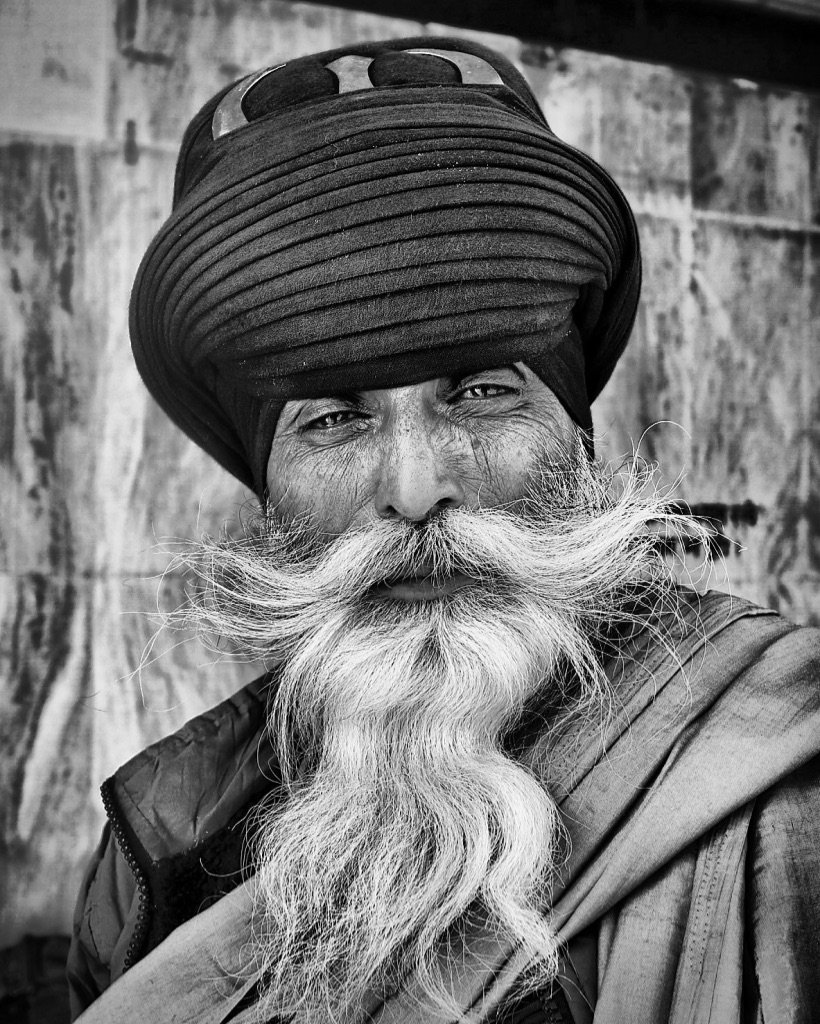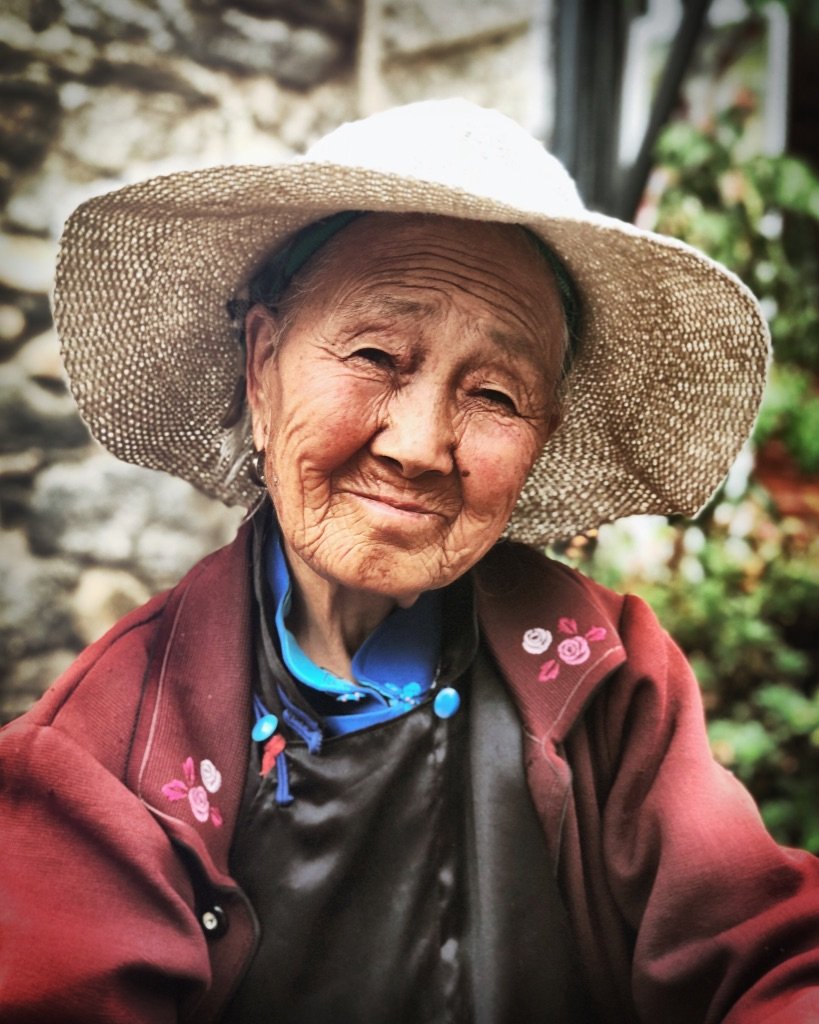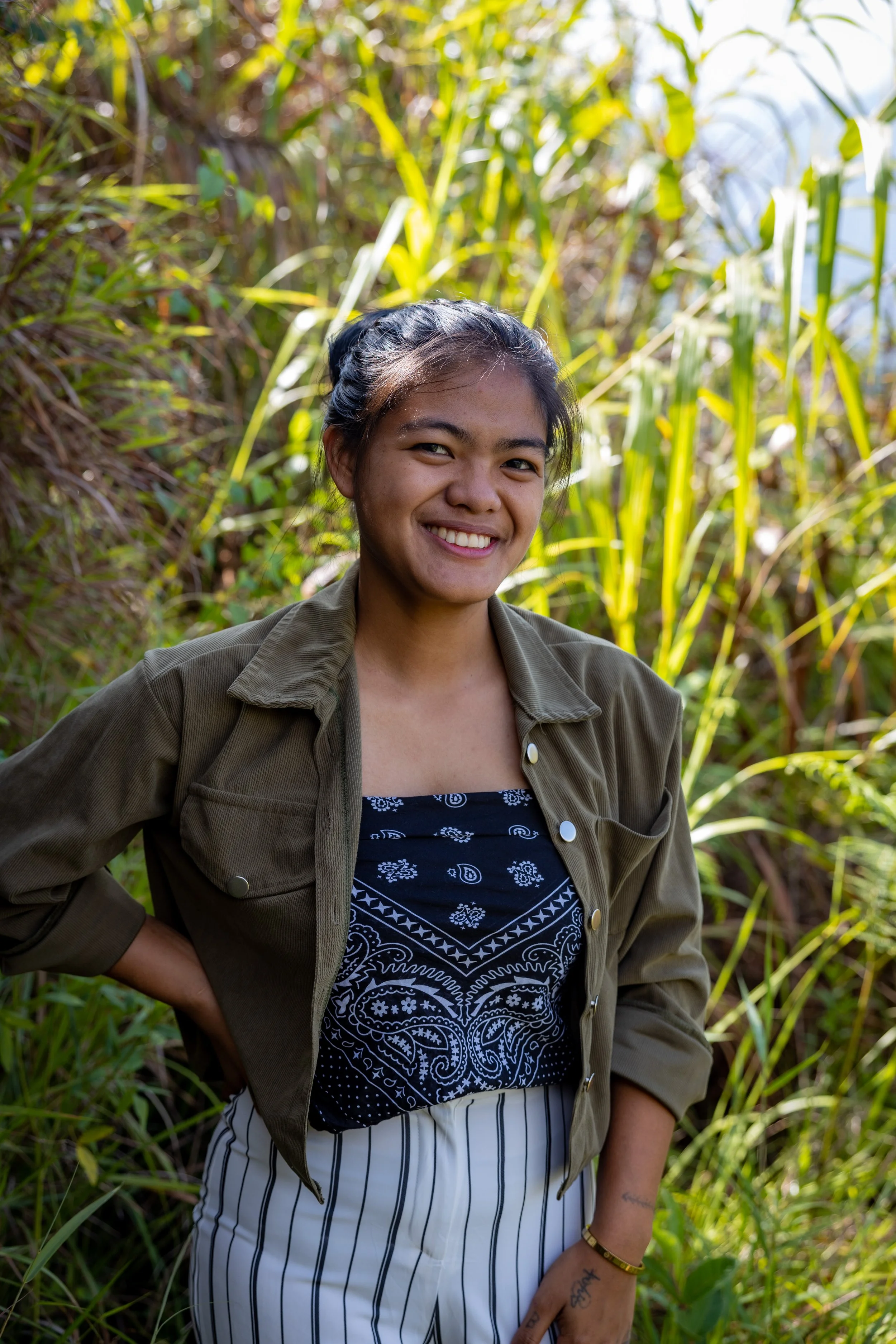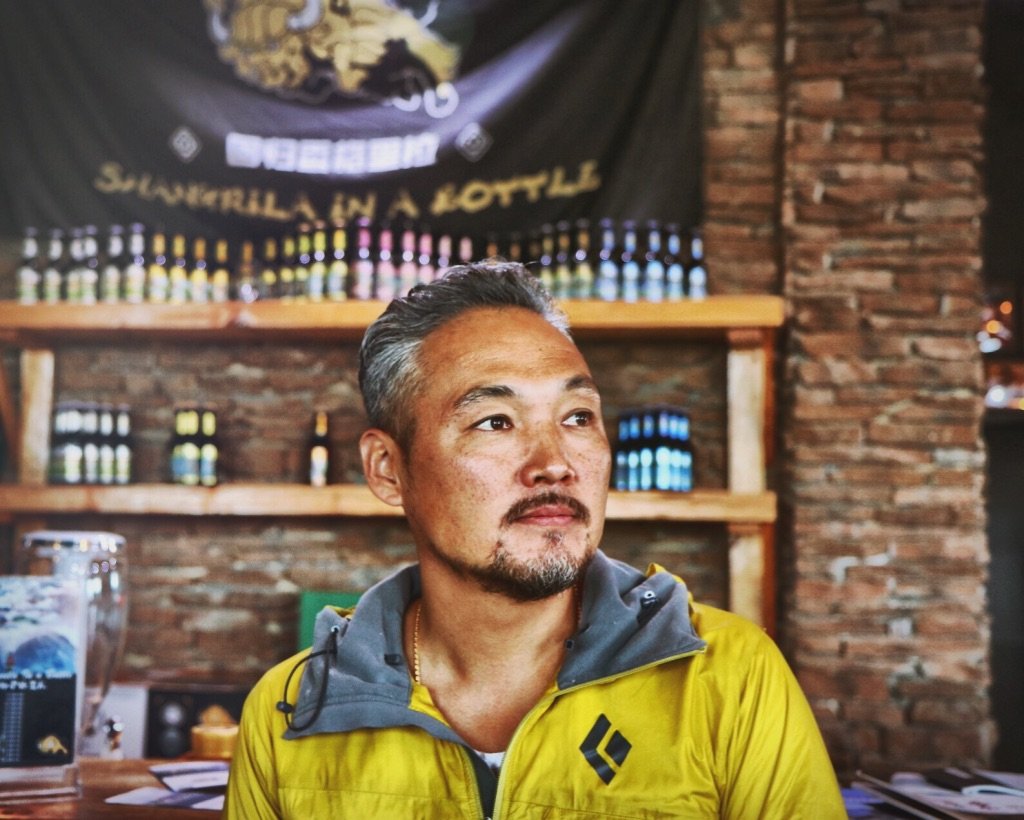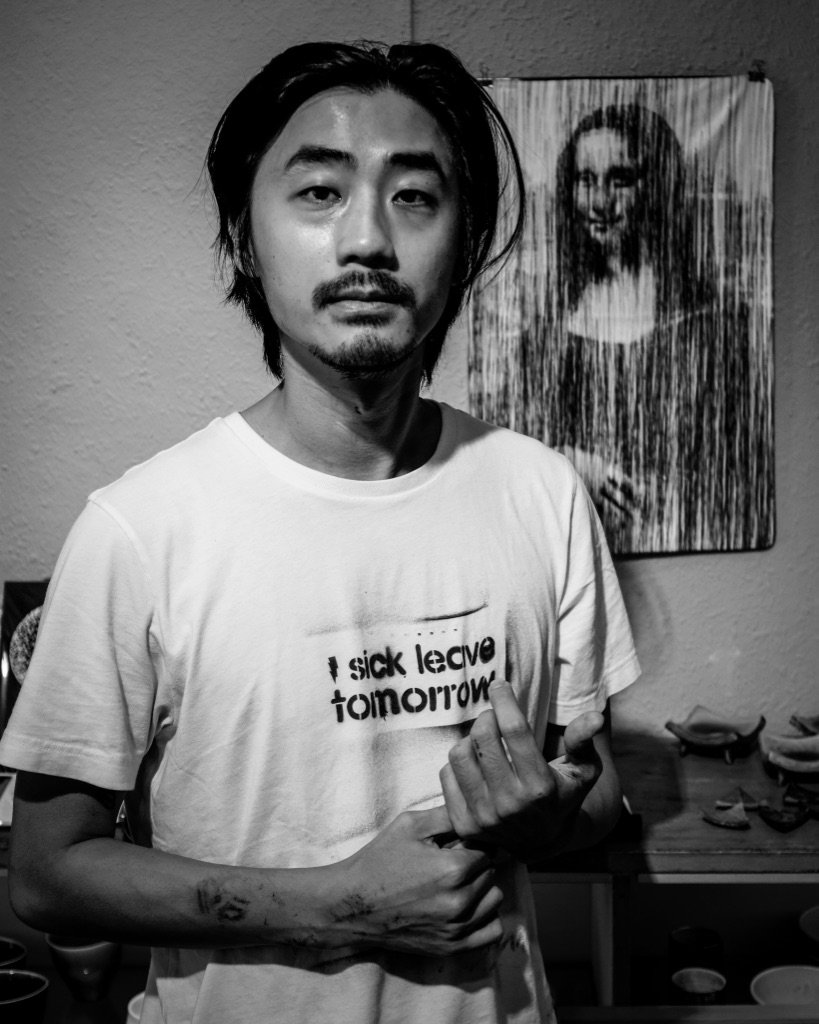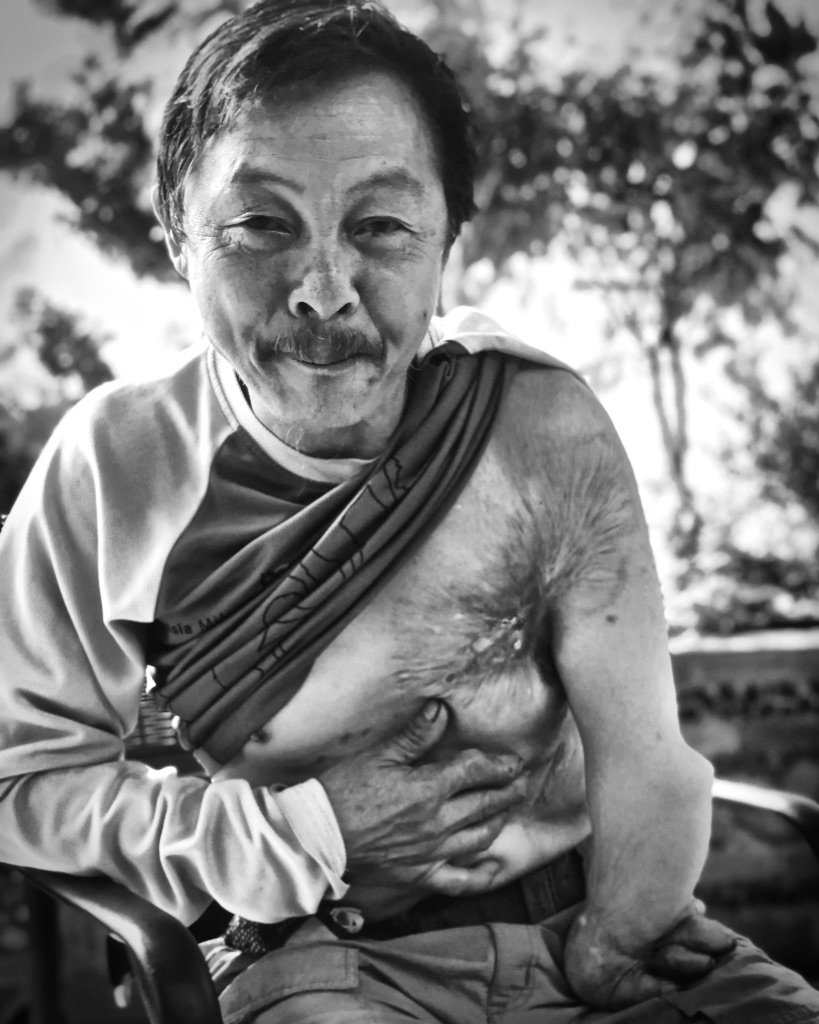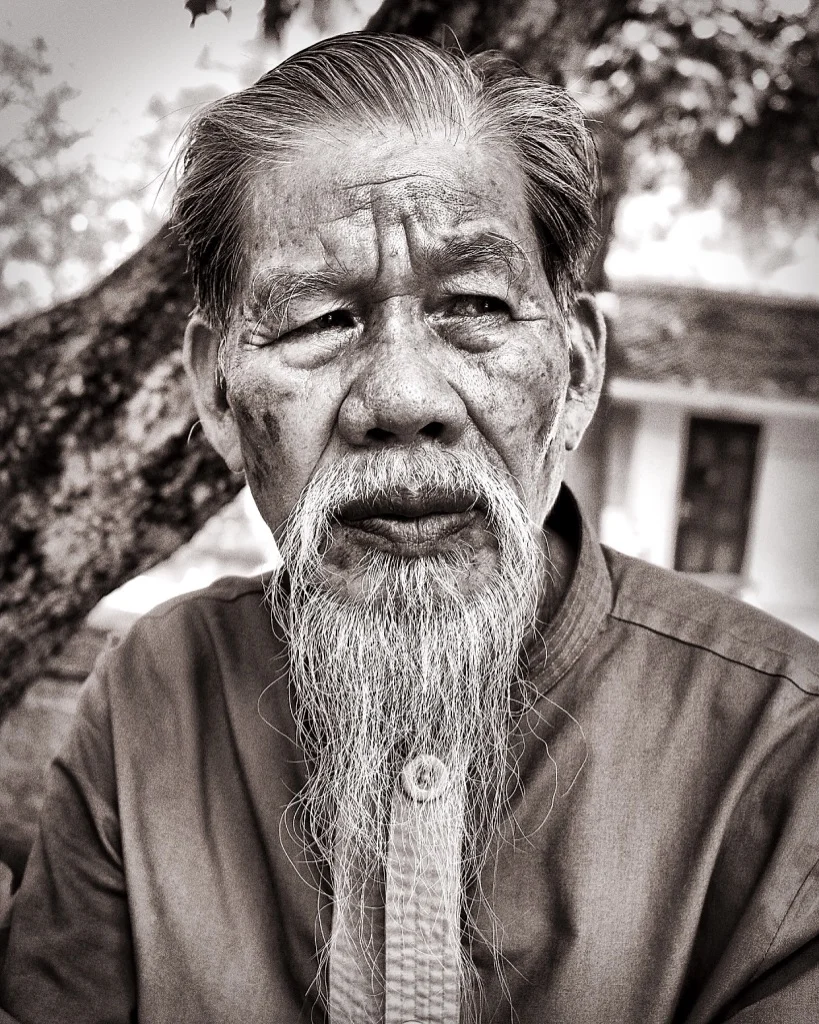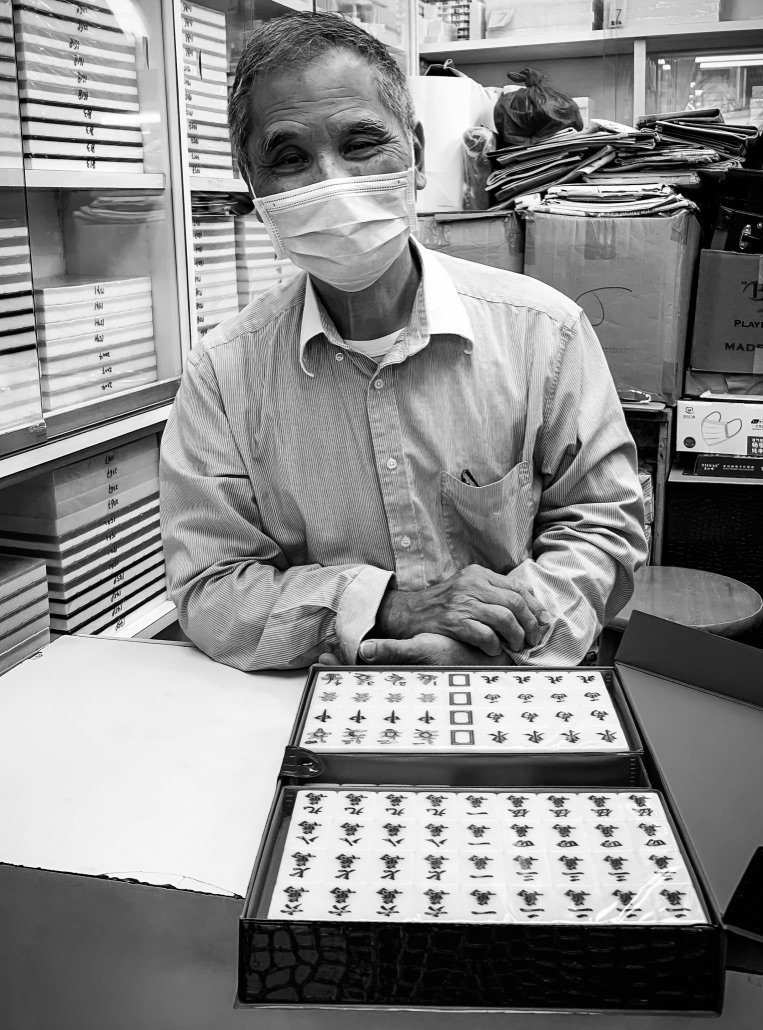What is most important in life? Different answers to the same question, when asked hundreds of times of people around the world from an array of backgrounds, reveal both the shared values of humanity and the infinite complexity and diversity of the human experience. The Portrait Project is a photographic representation of each individual and their unique and illuminating answer.
If Tendol Gyalzur isn’t a saint, I don’t know who is. An orphan herself, she started an orphanage in Lhasa in 1993 after she noticed that Tibetan children were left without a safety net as Tibetans left their nomadic lives and moved into cities. It was tough in the beginning when she started the project with little money but with enormous heart. Her organization flourished and she watched more than 300 children become successful with careers and families of their own. Now, 25 years after the first children walked in her door, she is called grandmother by almost 50 grandchildren.
She said, “When you love and trust people your road is flat. I learned from the children; they are the teacher and master.” She continued, “If you’re rich or poor, love is most important. Everyone wants to find the way to love and compassion. This is international, normal..... what it means to be a human being.” - Tendol Gyalzur, Shangrila, China
“Serve the people, make our guru happy, and follow tradition.” Sikh warrior
New Delhi, 2018
“My most important life lesson? Not everyone can stay. People are like seasons. They come and go. I learned that from recent experience.” -Daphny, 18,
Buscalan, Philippines resident.
The tea I grow and sell, because it supports my family.”
Yunnan, China 2018
@bvrlybrwy is Apo Whang-od’s granddaughter, one of the three dots of the tattoo and a skilled tattoo artist in of herself (and more gentle than her grandmother, as I can attest). Her most important life lesson? “It is better to give than to receive. But don’t forget to love yourself.”
Buscalan, Philippines, 2023
Sonny Gyalzur founded Shangri-La Highland Craft Beer Co., the largest microbrewery in China. He uses barley grown by Tibetan families and the fresh waters of the Himalayas to make beers that regularly win awards in Europe and around Asia. But the brewery’s mission goes far beyond the mixing of hops, barley, and water. Sonny is the son of Tendol, the woman who runs Tibetan orphanages. The brewery is a family affair; eighty-percent of the brewery’s workforce grew up in his mother’s orphanages. It provides rare professional opportunities in the region and has a huge economic impact for all of its employees. Sonny moved to Shangri-La from Switzerland, where he was born and raised, to reconnect with his roots. The change was jarring, but also taught him to think differently. He said his most important lesson is, “Don’t take yourself too seriously. In Switzerland, there was always pressure to succeed. I was living in a bubble. Everything was perfect and yet I was not happy. Now, living here, I’m more relaxed towards problems, because something that is not good for you may be good for others. For example, when it rains, the tourists are upset. But farmers need the rain. I have a bigger perspective here. I realized that Shangri-La is not a geographic location, you carry it in yourself.”
Yunnan, China 2018
@bensonkoo is an HK artist who creates haunting drawings and digital media. His studio near the beach in Cheung Chau brims with turquoise ceramics and brooding images that are on the edge of madness. His answer to what is most important in life? “Illusion. Real life is boring. In my imagination I am free.”
Hong Kong, SAR 2020
Sean is a cantankerous conservationist and promotes responsible ecotourism in the Tiger Leaping Gorge. But he is often undermined by the government, which prefers a top-down approach to protecting the gorge and frequently cuts out locals from the tourism industry. He has good reason to distrust the Communist Party: When Sean was just two-years old, during the Cultural Revolution, members of Mao’s Red Guard locked him and his family in his home and lit it on fire, attempting to kill them all. He carries significant scars and can barely use his left hand. He says the most important thing is, “do something real for other people.”
Too many Chinese people say one thing but do another. Protecting the environment is the entire world’s responsibility, but China has too many people and too many factories, so we have a bigger responsibility. Tourism is the best factory, because it doesn’t take from the environment.” When I asked him about whether he was concerned about repercussions for speaking out against the government, he was unconcerned. He said, “I cannot be a coward. If you don’t speak out, you can’t change the conditions. And if you don’t, we will all be weak.”
Tiger Leaping Gorge, Yunnan, China 2018
Sandeep is the joyful 18th generation Jain high priest of the Ranakpur temple outside of Udaipur, India, one of the largest and most holy Jain temples in the world. Built in the 15th century, it is a mastery of white marble, with hundreds of columns supporting domes detailing the lives of the prophets, dharmas, and dancing ladies. The cool winter air chills the marble under your bare feet while the saffron robes of the thin, ascetic monks add splashes of color as they clean the temple. Magic seems likely when you walk past the 600 year-old tree that still grows near the center.
Jainism is one of the oldest practiced religions in the world, with claims that it is 8,000 years old. It's precepts are similar to Buddhism: Non-attachment, non-violence, and "many-sidedness, " the concept that truth is relative and reality complex. Jains are "pure vegetarian," and do not eat eggs to avoid disrupting the reproductive cycle and many will not eat root vegetables because of the violence it does to the soil.
Sandeep, whose handsome smile make him look like a guru from central casting, says the most important thing in life is meditation, as it allows him to avoid the negative energy that comes from dwelling on the past or the future. "Why be sad about the past? It cannot be changed. Life is fantastic! We must enjoy it. And the best way to do that is to be present in the moment."
India, 2018
Mia is a Ukrainian rights activist, and she said that “Humanity, caring about others, doing the right things in human rights. All the humans and stay with humanity.”
Krakow, Poland March 2022
Taria, right is picking up her grandmother at the train station as war broke out in Ukraine. Her most important life lesson? “To love your family, it will allow you to survive these difficult times.”
Her Grandmother, Ukrainian: “To love your country.”
Krakow, Poland 2022
Mongolian rapper Tina G spits rhymes and drops beats as part of the hip-hop group Bei Pei, or as they like to say, the northern sect of the Wu Tang Clan.
Just like Biggie, Tupac, and the other rappers Tina G looks up to, Chinese hip-hop is fast becoming a vehicle for young Chinese to express their discontent with mainstream Chinese society. Moreover, the Chinese language, rich in rhymes, wordplay, and double entendre, lends itself well to rap. And since rap and tattoos are banned from state TV, it is an underground counterculture movement.
When I asked what was most important to her, she, along with the rest of her crew, said "hip-hop forever" with a scowl undermined by smiling eyes.
But later, when it was just the two of us, she said something else:feminism (女权主义) is important that Im treated equally. I love hip-hop, but it is only a vehicle to express myself. My father doesn't know about my tattoos or rapping, so I only go home to Mongolia in the winter so I can cover up my tattoos. But my mom knows and she supports me living the life I want. My boyfriend [also part of Bei Pei] respects my desire to be equal. He wants me to have a career and he supports me rapping too."
Yunnan, China 2018
Mr. Tem manned a 120mm anti-aircraft war for the Northern Vietnamese army, guarding the Ho Chi Minh trail from American bombers. Now he manages a 1,000 year-old Buddhist temple and learns to play classical music through Youtube videos. For nine years he shot into the sky, watching his friends die around him. From 1961-1970 he did not see or hear from his wife or family. He said that at the end of the war he didn't feel happy or sad, but he wasn't scared any more. "It was like I woke up after a long sleep."
Now Mr. Tem lives in a single-room with his friendly dog and plays the two-string violin and a bamboo Hmong flute at the Thai Vi Temple. He has an ear for music: He can pick up a complicated song in a couple of weeks just by watching online videos. He carries the sadness of the war, but doesn't blame the United States. "Lots of people in the US protested the war, and no one knew the outcome. It was Vietnam's fate to fight the wars. If you don't have the worst experiences you don't know the value of peaceful experiences."
Vietnam, 2019
Cheung Shunking has been hand-carving mahjong tiles for more than fifty years. Mahjong is basically the national sport of Hong Kong, and all the more so when everyone is stuck at home in self-imposes quarantines. The most important thing in life? “Honesty. You need to always speak the truth in my business.”
Hong Kong, SAR 2020

